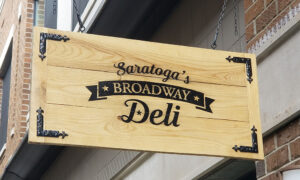A public rift has opened up between the mayor of Baltimore and The Stronach Group, the company that owns Pimlico Race Course, over the company’s support of bills that would eventually lead to the consolidation of racing at Laurel Park in Maryland.
The dispute arose after Tim Ritvo, The Stronach Group’s chief operating officer, sent a
letter in early February to legislative leaders asking them to support bills that would allow the company to tap state revenue sources to fund as much as $120 million of improvements to Laurel and the Bowie training center, two facilities owned by the company. The letter stated that Pimlico is “at the end of its useful life as a major event
venue,” and the “most viable plan” for racing in the state entailed the creation of a “super track” at Laurel.
In response, Baltimore Mayor Catherine Pugh sent a letter to the same individuals urging caution before supporting the legislation sought by the company. It also accused the privately owned, Toronto-based company of reneging on promises to support Pimlico and the community.
“Allowing a wealthy family from another country to use Maryland tax money for a racetrack to have as their anchor for the development of their 300-acre site in Laurel would be a travesty,” Pugh wrote. “TSG would be enriched and Maryland would be
diminished.”
The dispute underscores the delicate relationship between The Stronach Group and Baltimore following a years-long campaign by the company to build political support for the relocation of the Preakness to Laurel. The Preakness annually attracts more than 100,000 people to the track and is considered an economic engine for the city of
Baltimore, despite the track’s structural deficiencies.
Alan Foreman, general counsel for the Maryland Thoroughbred Horsemen’s Association, said that the organization does not have a specific opinion on the relocation of the Preakness. But he said horsemen supported the points in Ritvo’s letter
outlining long-term goals for the state’s racing industry, including a need for more racing
days “in pursuit of year-round racing” and “first-class training and equine health facilities.”
Late last year, a state agency, the Maryland Stadium Authority, released a report, prepared in consultation with The Stronach Group, that said a complete rebuild of Pimlico to turn the track into an “ideal venue to host the Preakness Stakes” would cost $424 million. The report recommended a so-called “public-private partnership” to fund
the renovation, even as officials for The Stronach Group balked at providing any of its own money to the project.
In her letter, Pugh pointed out that the report also said that a renovation of Pimlico for “racing-related structures alone” would cost $29 million, and she outlined a series of proposals The Stronach Group had offered in the past to improve the property, plans she said the company had never followed through on even as it tapped casino subsidies to improve Laurel.
“TSG allowed Pimlico to deteriorate even when they had [casino subsidies] to maintain and improve it,” Pugh wrote.
In an interview Thursday, Ritvo reiterated that The Stronach Group considers the future of the state’s racing industry to be based around Laurel Park and a refurbished Bowie training center. The company’s plan to support legislation that would allow casino subsidies to go toward the Bowie renovations and provide the basis for a $120 million
bond issue would allow the company to turn Laurel into a proper destination for the Preakness and, eventually, the Breeders’ Cup, Ritvo said.
“That’s our goal for Maryland,” Ritvo said. “That’s our whole plan.”
As for Pimlico, Ritvo said the company does not intend to improve the property without
the state and city funding the renovation.
“What we could do for $400 million at Pimlico would cost $100 million at Laurel,” Ritvo
said.
This story originally appeared on DRF.com.
Visit DRF.com for additional news, notes, wagering information, and more.















